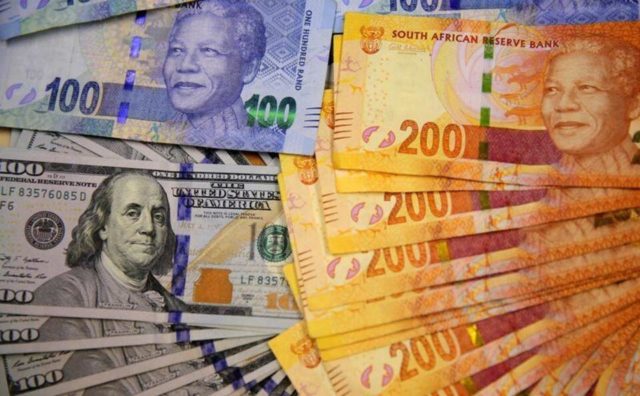After a week of recovery in global stock prices, financial markets now await the European Central Bank’s interest rate decision on Thursday, the US non-farm payrolls next Friday and the US Federal Reserve’s interest rate decision next Wednesday, writes Chris Harmse.
AFTER a week of recovery in global stock prices, financial markets now await the European Central Bank’s interest rate decision on Thursday, the US non-farm payrolls next Friday and the US Federal Reserve’s interest rate decision next Wednesday.
The uncertainty of the outcomes of these two events led to great volatility in most equity markets last week, as well as pressure on emerging markets currencies like the rand.
The rand ended the previous Friday weaker at R18.36 to the dollar.
During the middle of last week, the rand appreciated strongly to trade around R18.02 to the dollar at one stage, then slipped back on Thursday to R18.32 just to close the week again on R18.09. These volatile, but stronger movements followed world stock markets.
On Wall Street, the Dow Jones Industrial index remained bullish last week. The index ended 2.75% higher on Friday for the day and gained 3.4% over the week. The S&P 500 followed the same pattern and ended 2.37% on Friday up for the day, gaining 3.0% for the week. Equity markets were much over sold and already discounted in a 75 basis points increase in the Federal Reserve’s bank rate.
Since the release of the latest US inflation numbers during the middle of October, Wall Street continued its bullish movement and is on its way to record its best monthly recovery this year. The S&P 500 index already is up for the month to date by 4.7%.
In the UK, there were geopolitical concerns after the sacking of UK Finance Minister Kwasi Kwarteng and the resignation of UK prime minister Liz Truss. The UK inflation number of above 10.0% that was announced last week also did not help the current economic woes in the UK. British consumers had cut their spending sharply in September and the new finance minister Jeremy Hunt said that government borrowing had increased by more than expected. As a result, pound sterling remains under pressure, equity indexes dropped, and bond yields jumped.
US and global bond rates remain under stress as US treasuries tumbled last week to their highest levels since 2007, as the US Fed officials remain imminent that interest rates will increase further and stay high for an exceedingly long time.
The largest US banks also warned that trouble is brewing in the auto loan market as the increase in interest rates, and the dropping in prices for second-hand vehicles, will put stress on borrowers.
South African bond rates also remain under pressure as the R209 long bond rate increased to 11.1%, on expectations that major banks, especially the US Federal Reserve, are likely to continue to be aggressive in increasing bank rates.
In South Africa, the release of the inflation rate for September 2022 on Wednesday brought mixed feelings to investors and policy makers. The growth in the CPI in June was 7.5%, marginally lower than the 7.6% in August and 7.8% in July.
Food and non-alcoholic beverages had increased by almost 12.0% over the last year and contributed 2.0% to the inflation rate. Transport costs, which includes fuel costs, had increased by 17.9% year-on-year and contributed 2.3% of the total inflation rate.
Amongst the individual items in the basket, oils, and fats (29%), and bread and cereals (19.3%) show the effect of the ongoing Russian-Ukraine conflict.
South African retail sales also start to feel the pressure of higher interest rates and consumer prices. Retail sales had risen by only 2.0% in August (year-on-year) after the sharp increase of 8.9% in July. Market expectations were for a 4.2% increase.
The gold price had recovered strongly by Friday to $1621 (R28 059) per ounce last Wednesday.
On the JSE, equity prices, in line with Wall Street, also improved strongly last week. The All Share Index broke through the 65 000 points (65 539) last week, the first time since the end of September 2022 as the index gained 3.1% over the week.
This coming week Statistics SA will release the producer inflation rate for September on Thursday. It is expected that the PPI rate came down from 16.6% in August to 15.8% in September.
Globally, investors will turn their attention to the interest rate decision by the Eurozone Central Bank (ECB) on Thursday. It is expected that the bank will increase its lending rate by 0.75% to 2.0%, following the same increase as The Fed two weeks ago. In the US, the release of various housing sales data this coming week as well as the durable goods orders will be of interest.
* Chris Harmse is an economist at CH Economics and a lecturer at the School of Commerce at Stadio Multiversity.
– BUSINESS REPORT








